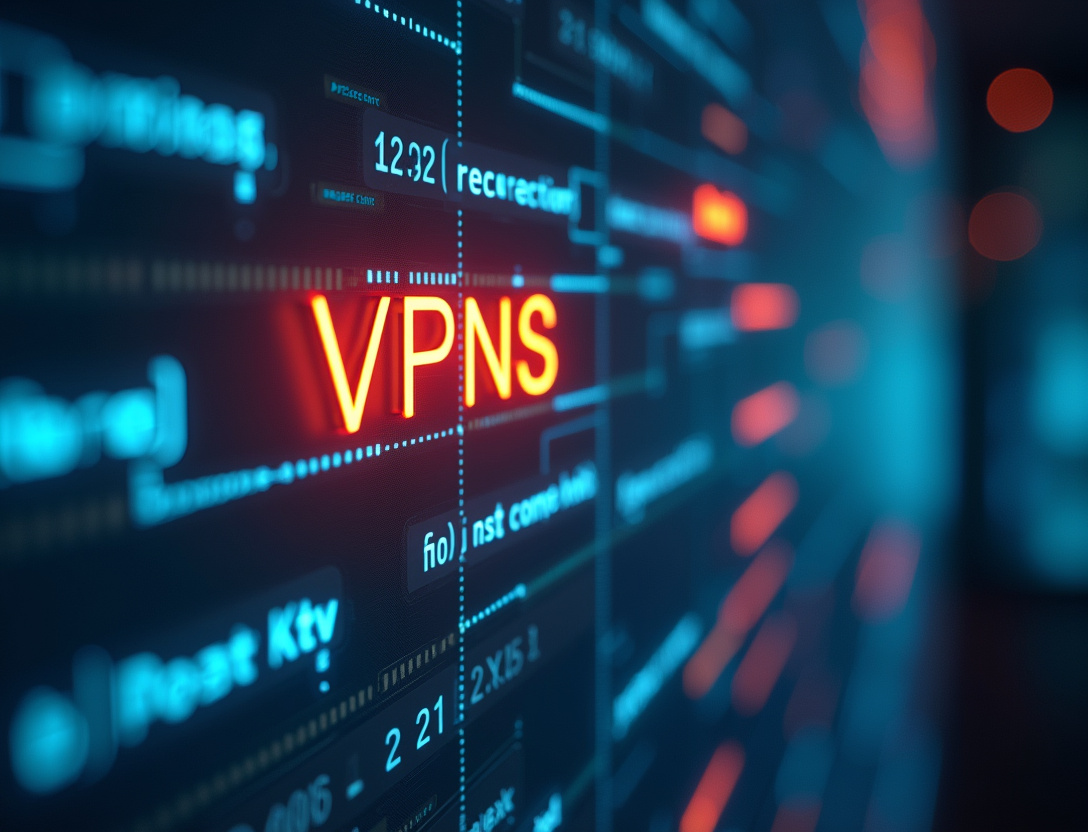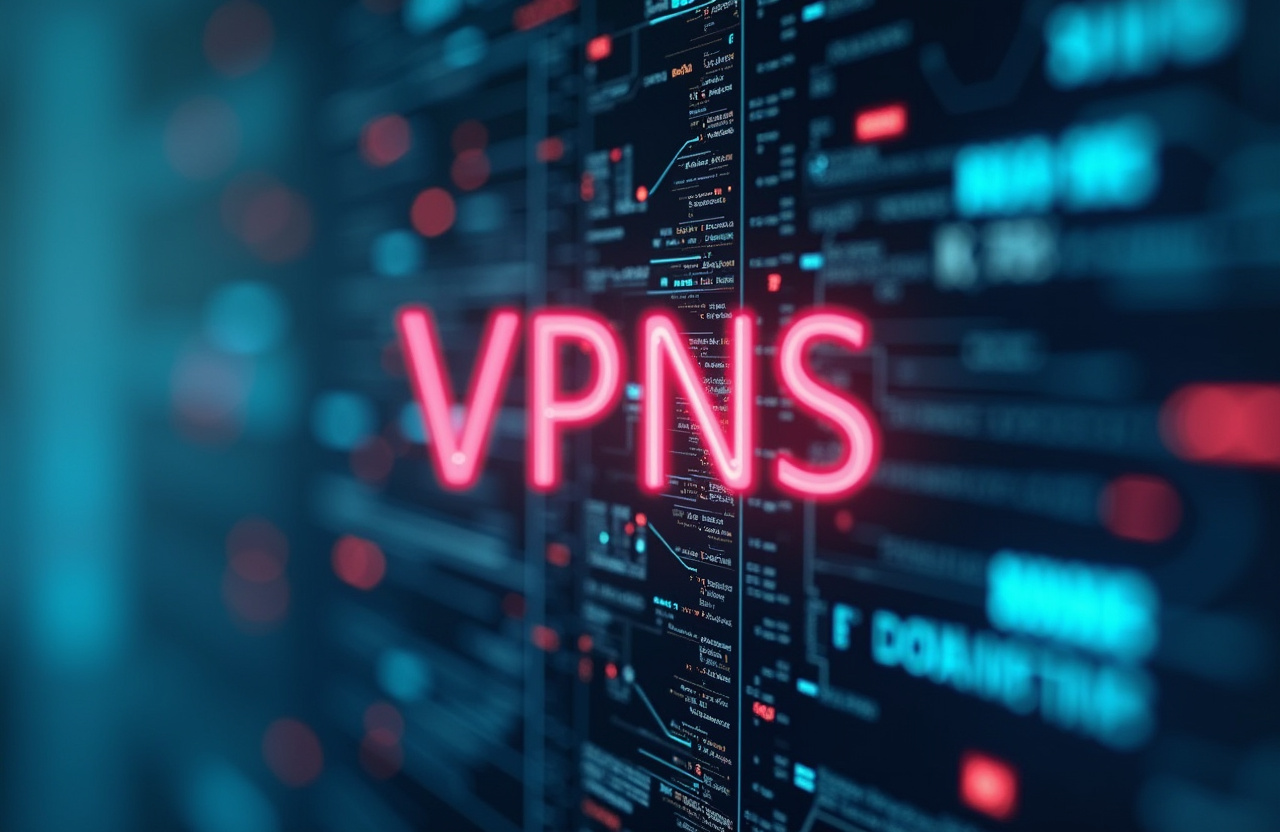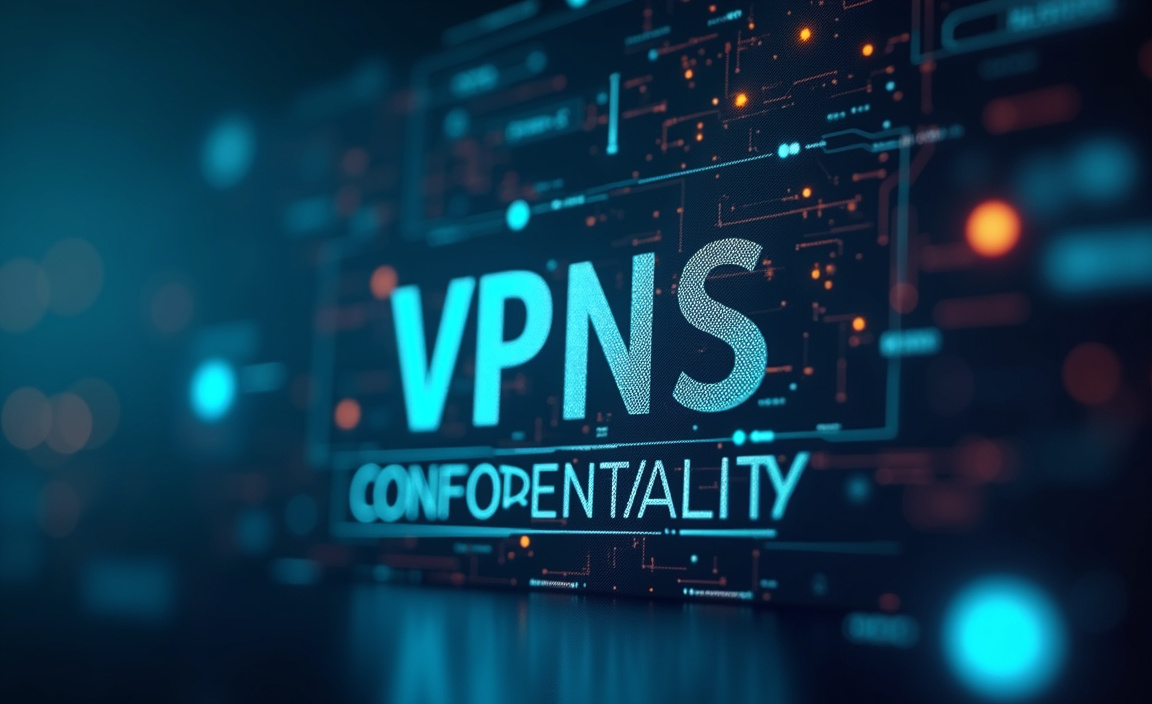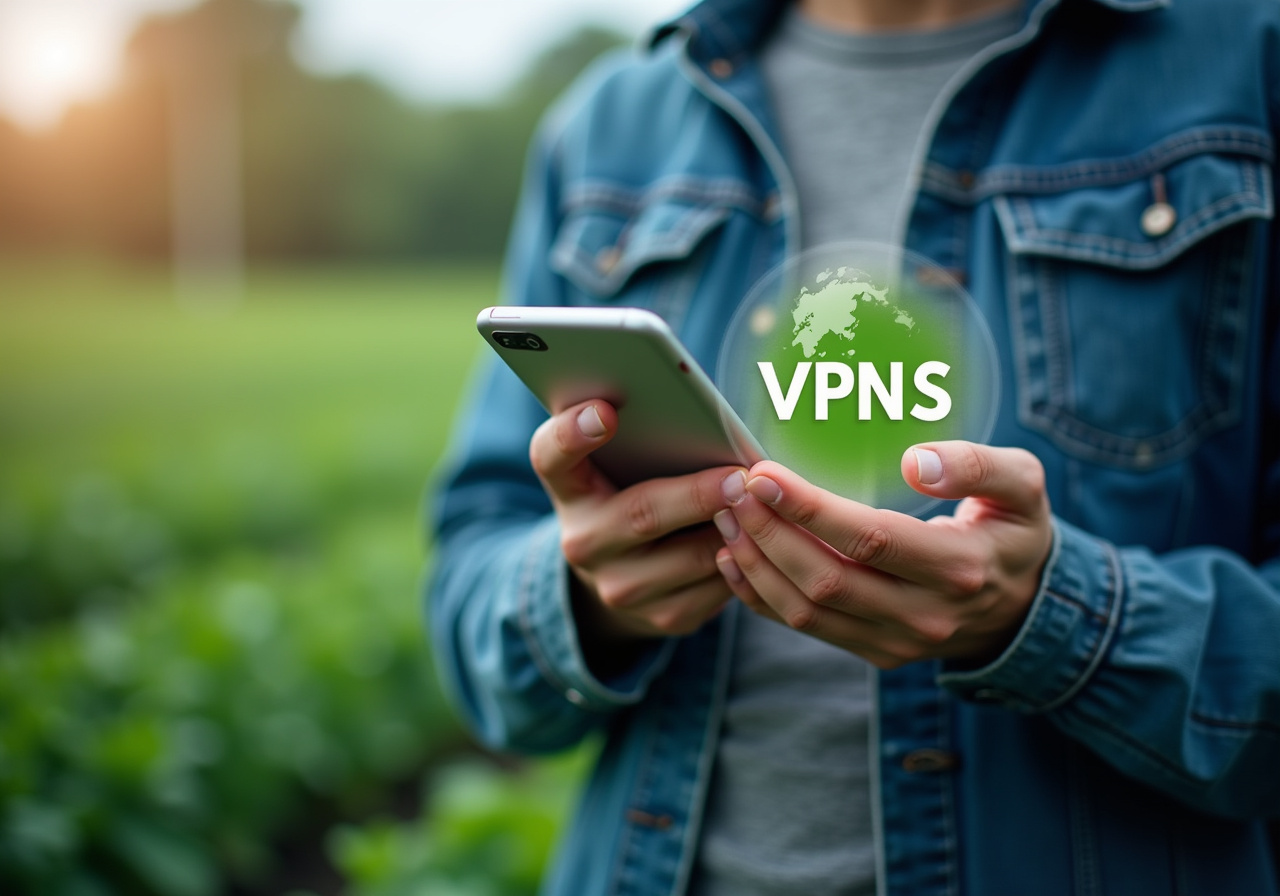VPNs for Independent Researchers: Securing Experimental Notes

Table of Contents
- VPNs for Independent Researchers: Fortifying Experimental Notes Security
- Understanding the Landscape: Threats to Research Data and the Role of VPNs
- Selecting the Right VPN: Key Considerations for Independent Researchers
- Configuring and Using a VPN for Optimal Security and Research Data Protection
- Beyond VPNs: A Holistic Approach to Research Data and Experimental Notes Security
VPNs for Independent Researchers: Fortifying Experimental Notes Security
In the dynamic world of scientific exploration, independent researchers face a unique set of challenges, particularly concerning the security of their invaluable experimental notes and sensitive research data. These dedicated individuals, often driven by a passion for discovery and operating outside the confines of traditional institutions, require robust and reliable measures to protect their intellectual property, maintain data integrity, and ensure project confidentiality. This article delves into the critical role that Virtual Private Networks (VPNs) play in safeguarding the work of independent researchers, providing a secure and encrypted environment for their data, bolstering experimental notes security, and empowering them to pursue their scientific endeavors with confidence.
A VPN acts as a powerful shield, masking their online identity, encrypting their data transmissions, and circumventing geographical restrictions, thereby enabling seamless and secure access to research resources from anywhere in the world. As independent researchers increasingly rely on digital tools and online platforms for data collection, collaboration, and dissemination, the need for a comprehensive security strategy becomes ever more crucial. A well-configured VPN is an essential component of this strategy, offering a first line of defense against cyber threats, data breaches, and intellectual property theft.
The importance of safeguarding research data extends beyond mere protection against malicious actors. It encompasses preserving the integrity of the data itself, ensuring that it remains accurate, complete, and unaltered throughout the research process. Independent researchers often work with limited resources and technical support, making them particularly vulnerable to accidental data loss, corruption, or unauthorized modifications.
A VPN helps to mitigate these risks by providing a secure and reliable connection for data storage, retrieval, and transfer, minimizing the likelihood of data breaches or tampering. Furthermore, the confidentiality of research data is paramount, especially when dealing with sensitive or proprietary information. Independent researchers may be working on projects with significant commercial value or involving personal data that requires strict protection.
A VPN helps to maintain this confidentiality by encrypting all data transmissions, preventing unauthorized access by third parties, and ensuring compliance with data privacy regulations. The challenges faced by independent researchers necessitate a tailored approach to VPN adoption, taking into account their specific security needs, research practices, and budgetary constraints. Selecting the right VPN requires careful consideration of factors such as encryption protocols, logging policies, server locations, and ease of use.
It is essential to choose a VPN provider with a proven track record of security and privacy, a transparent data management policy, and a commitment to protecting its users' data. Additionally, independent researchers should implement best practices for VPN usage, such as regularly updating their VPN software, using strong passwords, and avoiding public Wi-Fi networks without VPN protection. In summary, as independent researchers push the boundaries of scientific knowledge, VPNs become indispensable partners in their journey, providing the essential security and privacy they need to protect their experimental notes security, data integrity, and intellectual property.
By embracing VPN technology and adopting a proactive security posture, independent researchers can flourish, fostering innovation, and contributing to the advancement of science without compromising the integrity of their work. This fortified approach reinforces the foundation of independent research, ensuring that its contributions remain ethical, verifiable, and securely guarded against ever-evolving digital threats.
Understanding the Landscape: Threats to Research Data and the Role of VPNs
Before diving into the practical aspects of selecting and configuring a VPN for independent research purposes, it is crucial to have a comprehensive understanding of the threat landscape and the specific vulnerabilities that independent researchers face concerning their research data. This understanding will highlight the invaluable role that VPNs play in mitigating these risks and providing a secure environment for scientific exploration. Independent researchers, often operating with limited resources and technical expertise, are prime targets for various cyber threats, data breaches, and intellectual property theft.
Unlike large institutions with dedicated security teams, independent researchers may lack the necessary infrastructure and knowledge to effectively protect their sensitive research data. This makes them more susceptible to attacks, either targeted or opportunistic in nature. The motivations behind these attacks can vary widely, ranging from competitors seeking to gain an unfair advantage by stealing valuable research findings to malicious actors attempting to extort researchers or disrupt their work.
Additionally, government entities or corporate spies may be interested in acquiring cutting-edge research data for their own purposes. The potential threats to research data are diverse and evolving. Phishing attacks, for instance, can trick researchers into revealing their credentials or downloading malicious software.
Malware infections can compromise their devices, allowing attackers to steal data, monitor their activities, or even remotely control their systems. Network eavesdropping, particularly on public Wi-Fi networks, can expose unencrypted data transmissions to interception. Cloud storage services, while convenient for data sharing and collaboration, also introduce security risks if not properly configured and secured.
Weak passwords, lack of multi-factor authentication, and misconfigured access controls can leave research data vulnerable to unauthorized access. Another significant threat is the accidental loss or corruption of data. Without proper backup and recovery mechanisms, researchers can lose years of work due to hardware failures, software glitches, or human error.
This underscores the importantance of a holistic research data and experimental notes security implementation. Furthermore, independent researchers often collaborate with colleagues and partners across geographical boundaries, requiring secure data sharing and communication channels. Without proper encryption and authentication, these collaborations can expose sensitive research data to unauthorized access or interception, particularly if the collaborators themselves are not security-conscious.
In this multifaceted threat environment, a VPN emerges as an indispensable tool for independent researchers, providing a robust layer of security and privacy. By creating an encrypted tunnel between the researcher's device and a VPN server, all data transmissions are shielded from prying eyes. This encryption effectively prevents attackers from intercepting or understanding sensitive information, such as passwords, research data, and personal communications.
Additionally, a VPN masks the researcher's IP address, making it difficult to track their online activities or identify their location. This anonymity helps to protect them from targeted attacks and censorship. By routing their internet traffic through a VPN server in a different location, researchers can also bypass geographical restrictions and access research resources that may be blocked in their region.
Furthermore, a VPN can help to prevent data breaches by securing cloud storage connections and protecting against man-in-the-middle attacks. By encrypting all data transmissions, a VPN ensures that even if an attacker gains access to the network, they will not be able to decipher the research data being transmitted between the researcher and the cloud storage provider. In essence, a VPN provides a multi-layered defense against a wide range of threats, protecting the confidentiality, integrity, and availability of research data.
Recognizing the critical role of VPNs in safeguarding independent research is the first step towards adopting a comprehensive security strategy that empowers researchers to pursue their scientific endeavors with confidence and peace of mind. The experimental notes security is paramount, and the VPN forms the backbone of this security.
Selecting the Right VPN: Key Considerations for Independent Researchers
The decision of which VPN to implement is a crucial one for independent researchers aiming to fortify their research data and experimental notes security. It's not simply a matter of picking the most advertised or cheapest option. A thorough evaluation is essential, taking into account the unique needs and constraints of independent research.
Several factors must be carefully considered to ensure the selected VPN provides the necessary level of protection, performance, and usability. Encryption Protocols: The strength of the encryption protocol is the bedrock of VPN security. Independent researchers should prioritize VPNs employing robust and widely trusted protocols like OpenVPN, IKEv2/IPsec, or WireGuard.
OpenVPN, in particular, is often lauded for its open-source nature, allowing for continuous scrutiny and improvement by the security community, making it a highly secure choice for sensitive research data. These protocols utilize strong encryption algorithms to scramble data, rendering it unreadable to unauthorized parties who may intercept the traffic. Avoid VPNs that rely on outdated or proprietary protocols with known vulnerabilities.
The specific encryption cipher used (e.g., AES-256) also impacts security strength; higher bit values provide greater protection. Understanding these technical details, or seeking guidance from a trusted IT professional, is crucial for making an informed decision. Logging Policy: A VPN's logging policy dictates what information the provider collects and stores about its users' activities.
For independent researchers, a strict "no-logs" policy is paramount. This means the VPN provider does not track or retain any data about your browsing history, IP address, connection timestamps, or other sensitive information. A no-logs policy ensures that even if the VPN server is compromised or subpoenaed by law enforcement, there will be no user data available to disclose.
Carefully examine the VPN provider's privacy policy to understand its logging practices. Be wary of providers that claim to have a no-logs policy but collect connection metadata or aggregate usage statistics. Look for VPN providers that have undergone independent audits to verify their no-logs claims, enhancing trust and transparency.
A reliable VPN will prioritize user experimental notes security. Server Network: The size and distribution of a VPN's server network are important considerations for several reasons. A larger network offers more options for connecting to servers in different locations, allowing researchers to bypass geo-restrictions and access research resources that may be blocked in their region.
It also provides more flexibility in terms of optimizing connection speed and performance. Connecting to a server closer to your physical location generally results in lower latency and faster speeds. Additionally, a diverse server network reduces the risk of server congestion and ensures that you can always find a reliable and fast connection.
Speed and Performance: While security is paramount, performance is also a crucial factor for independent researchers. Slow VPN connections can significantly hamper productivity and make it challenging to access large datasets or collaborate online. Test the VPN's speed and stability before committing to a subscription.
Use online speed testing tools to measure upload and download speeds with the VPN enabled and disabled. Consider the impact of encryption on performance; higher encryption levels generally result in slower speeds. A reputable VPN provider will optimize its server infrastructure to minimize the performance impact of encryption.
Ease of Use and Device Compatibility: The VPN should be easy to set up and use, even for researchers with limited technical expertise. Look for VPNs that offer user-friendly apps for all of your devices, including laptops, desktops, smartphones, and tablets. The apps should be intuitive and straightforward to configure, with clear instructions and helpful support resources.
Also, ensure that the VPN is compatible with your operating systems and devices. It's also important to be able to secure a variety of devices, ensuring all experimental notes security access points are secured. Pricing and Support: VPN pricing plans vary widely, so it's essential to compare different options and choose a plan that fits your budget.
However, don't solely base your decision on price. A cheap VPN may compromise security or performance. Consider the value proposition of each VPN provider, taking into account its security features, server network, performance, and customer support.
Reliable customer support is crucial for troubleshooting issues and getting help with VPN setup and configuration. Ensure that the VPN provider offers responsive and helpful support channels, such as email, live chat, or phone support. By carefully considering these key factors, independent researchers can select a VPN that effectively protects their research data, enhances their privacy, and empowers them to pursue their scientific endeavors with confidence.
The priority should always be the ability to secure experimental notes security and research.
Configuring and Using a VPN for Optimal Security and Research Data Protection
Once an appropriate VPN has been selected, the next crucial step involves configuring and utilizing it effectively to maximize its security benefits and ensure optimal research data protection. This process goes beyond simply installing the VPN application and connecting to a server; it requires implementing best practices and understanding various configuration options to fine-tune the VPN's performance and security settings to meet the specific needs of independent research. Initial Setup and Configuration: The initial setup usually involves downloading and installing the VPN application from the provider's website.
Ensure you download the application directly from the official source to avoid the risk of installing malware or compromised software. During the installation process, carefully review the permissions requested by the application and grant only those that are strictly necessary. Once the application is installed, you'll typically need to log in using your VPN account credentials.
After logging in, explore the application's settings menu to customize the configuration options. One of the most important settings is the choice of VPN protocol. As mentioned earlier, prioritize strong protocols like OpenVPN, IKEv2/IPsec, or WireGuard.
If the VPN application offers multiple protocol options, research and select the protocol that provides the best balance of security and performance for your specific needs. Within the VPN application, explore the server selection options, carefully selecting relevant servers in geographic locations suitable for your research. Best Practices for Secure VPN Usage: Beyond basic setup, several best practices should be followed consistently to ensure the VPN provides the highest level of protection.
Always connect to the VPN before accessing sensitive research data or engaging in activities that require privacy, such as reading scientific publications, communicating with collaborators, or accessing online databases. This ensures that all your data transmissions are encrypted from the outset, protecting your information from potential eavesdropping or interception. Regularly update the VPN application to ensure you have the latest security patches and bug fixes.
VPN providers constantly release updates to address newly discovered vulnerabilities and improve the performance and reliability of their applications. Enable the VPN's "kill switch" feature, if available. A kill switch automatically disconnects your internet connection if the VPN connection drops unexpectedly, preventing your data from being transmitted unencrypted.
Be cautious when using public Wi-Fi networks, even with a VPN enabled. Public Wi-Fi networks are often unsecured and can be easily exploited by attackers. Avoid accessing highly sensitive research data or conducting financial transactions on public Wi-Fi, even with a VPN.
Consider instead using your mobile data connection or a personal hotspot for better security. Periodically check your IP address to verify that the VPN is effectively masking your real IP address. There are many online tools available that can display your current IP address.
If the IP address displayed matches your real IP address, there may be a problem with the VPN connection. Consider implementing two-factor authentication (2FA) on your VPN account to add an extra layer of security. 2FA requires you to enter a verification code from your phone or another device in addition to your password when logging in, making it much more difficult for attackers to gain unauthorized access to your account.
Regularly clear your browser's cache and cookies to prevent tracking and enhance your privacy. Cookies can be used to track your online activity even when you are connected to a VPN. Advanced Configuration Options: Depending on the VPN application, several advanced configuration options may be available to further enhance security and customize the VPN's behavior.
Explore these options to fine-tune the VPN's settings to your specific needs. Some VPNs offer DNS leak protection, which prevents your DNS queries from being exposed to your internet service provider (ISP). Enable this feature to enhance your privacy.
Split tunneling allows you to route some of your internet traffic through the VPN while routing other traffic directly through your ISP. This can be useful for optimizing performance if you only need to protect certain applications or websites with the VPN. However, use split tunneling with caution, as it can potentially expose unencrypted data.
In conclusion, configuring and using a VPN effectively requires more than just installation; it demands consistent adherence to best practices, regular updates, and a proactive approach to customizing settings for maximal research data and experimental notes security. This holistic approach turns the VPN from a simple application into a steadfast guardian of independent researchers' digital sovereignty.
Beyond VPNs: A Holistic Approach to Research Data and Experimental Notes Security
While a VPN provides a crucial layer of protection for independent researchers, it is essential to recognize that it is just one component of a comprehensive security strategy. Relying solely on a VPN without implementing other security measures leaves research data vulnerable to various threats that a VPN alone cannot mitigate. A holistic approach to research data and experimental notes security involves a layered defense strategy that encompasses various security controls, policies, and practices designed to protect data throughout its lifecycle.
Strengthening Device Security: The first step in a holistic security approach is to harden the security of the devices used for research. This includes laptops, desktops, smartphones, and tablets. Ensure that all devices have up-to-date operating systems and security software, including anti-virus, anti-malware, and firewall protection.
Enable automatic updates to ensure that security patches are installed promptly to address newly discovered vulnerabilities. Use strong and unique passwords for all accounts and devices. Avoid using easily guessable passwords or reusing the same password across multiple accounts.
Consider using a password manager to generate and store strong passwords securely. Enable multi-factor authentication (MFA) on all accounts that support it, including email, cloud storage, and VPN accounts. MFA adds an extra layer of security by requiring you to enter a verification code from your phone or another device in addition to your password when logging in, making it much more difficult for attackers to gain unauthorized access to your accounts.
Encrypt the hard drives of your devices to protect your data in case of theft or loss. Encryption scrambles the data on your hard drive, making it unreadable to anyone who doesn't have the encryption key. Implement device control policies to restrict the use of unauthorized devices on your network.
This can help to prevent malware infections and data breaches. Implementing Data Security Policies and Practices: In addition to securing your devices, it is essential to implement robust data security policies and practices. Develop a data classification policy to identify and categorize different types of research data based on their sensitivity and importance.
This will help you to prioritize security efforts and implement appropriate controls for each data type. Implement access control policies to restrict access to research data to only those individuals who need it. Use the principle of least privilege, granting users only the minimum level of access required to perform their job duties.
Regularly back up your research data to a secure location, either on-site or off-site. Test your backup and recovery procedures to ensure that you can restore your data in case of a disaster. Implement data loss prevention (DLP) measures to prevent sensitive research data from leaving your organization without authorization.
DLP tools can monitor data in transit, data at rest, and data in use to detect and prevent data leaks. Provide regular security awareness training to your researchers to educate them about the latest security threats and best practices. Training should cover topics such as phishing awareness, password security, malware prevention, and data handling procedures.
Implement incident response procedures to prepare for and respond to security incidents. These procedures should outline the steps to take in case of a data breach, malware infection, or other security event. Conduct regular security audits and vulnerability assessments to identify and address potential weaknesses in your security posture.
These assessments can help you to identify gaps in your security controls and implement corrective measures. Securing Collaboration and Communication: As independent researchers often collaborate with others, it is essential to secure collaboration and communication channels. Use secure communication tools that offer end-to-end encryption to protect the confidentiality of your conversations.
Avoid using insecure communication channels, such as email or unencrypted messaging apps, to discuss sensitive research data. Share research data securely using encrypted file sharing services or secure collaboration platforms. Implement access controls to restrict access to shared data to only authorized individuals.
Use virtual data rooms (VDRs) to securely share confidential research data with external parties, such as investors or potential licensees; reinforcing experimental notes secuirty in all aspects. In conclusion, while a VPN is a valuable tool for protecting research data and enhancing privacy, it is essential to adopt a holistic approach to security that encompasses device security, data security policies, and secure collaboration practices. By implementing a layered defense strategy, independent researchers can significantly reduce their risk of data breaches, intellectual property theft, and other security threats.
The combination of a robust VPN and a comprehensive security strategy empowers independent researchers to pursue their scientific endeavors with confidence, knowing that their valuable data is protected.
Stay Updated
Get the latest VPN news, tips, and exclusive deals to your inbox.




